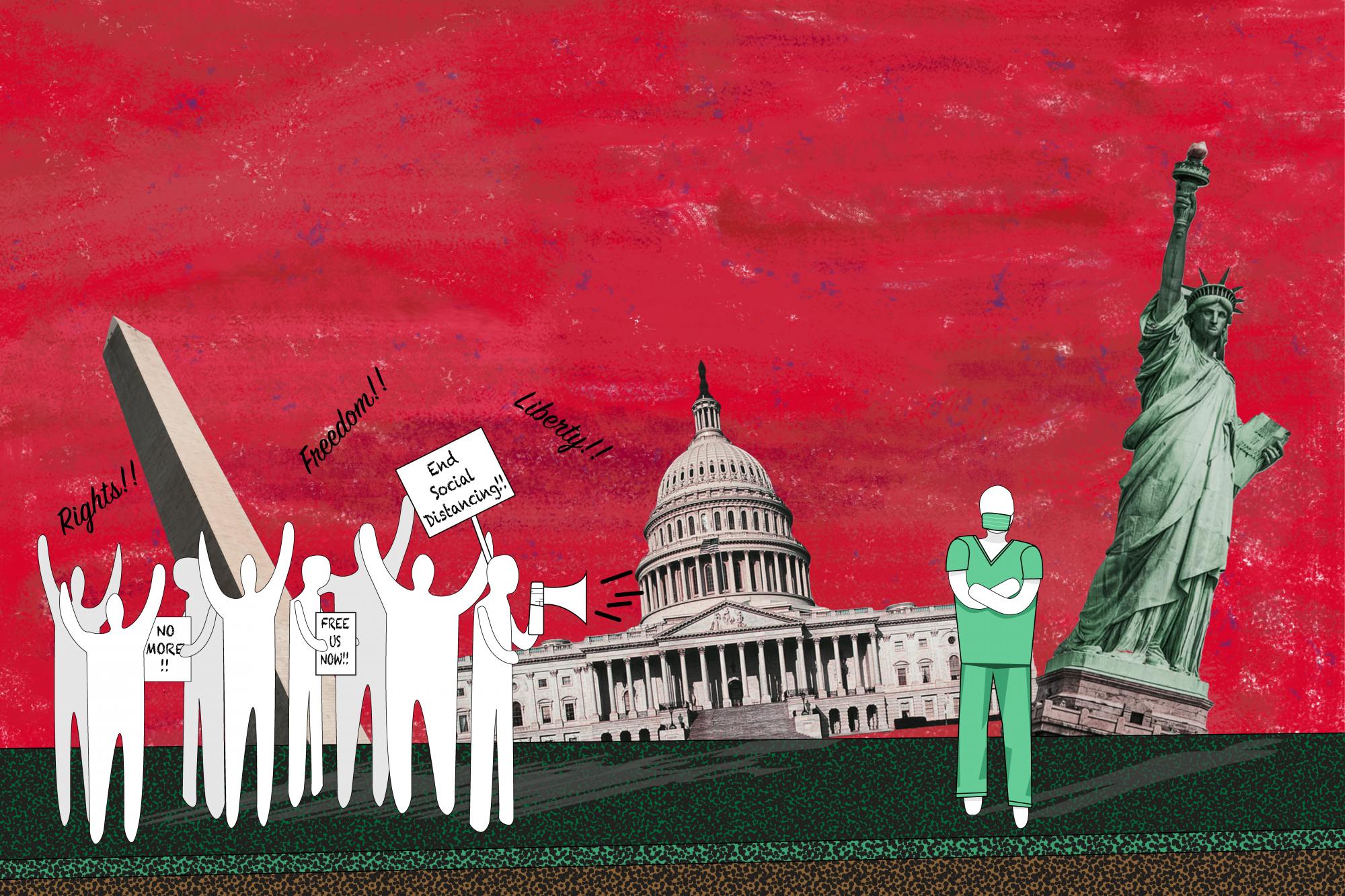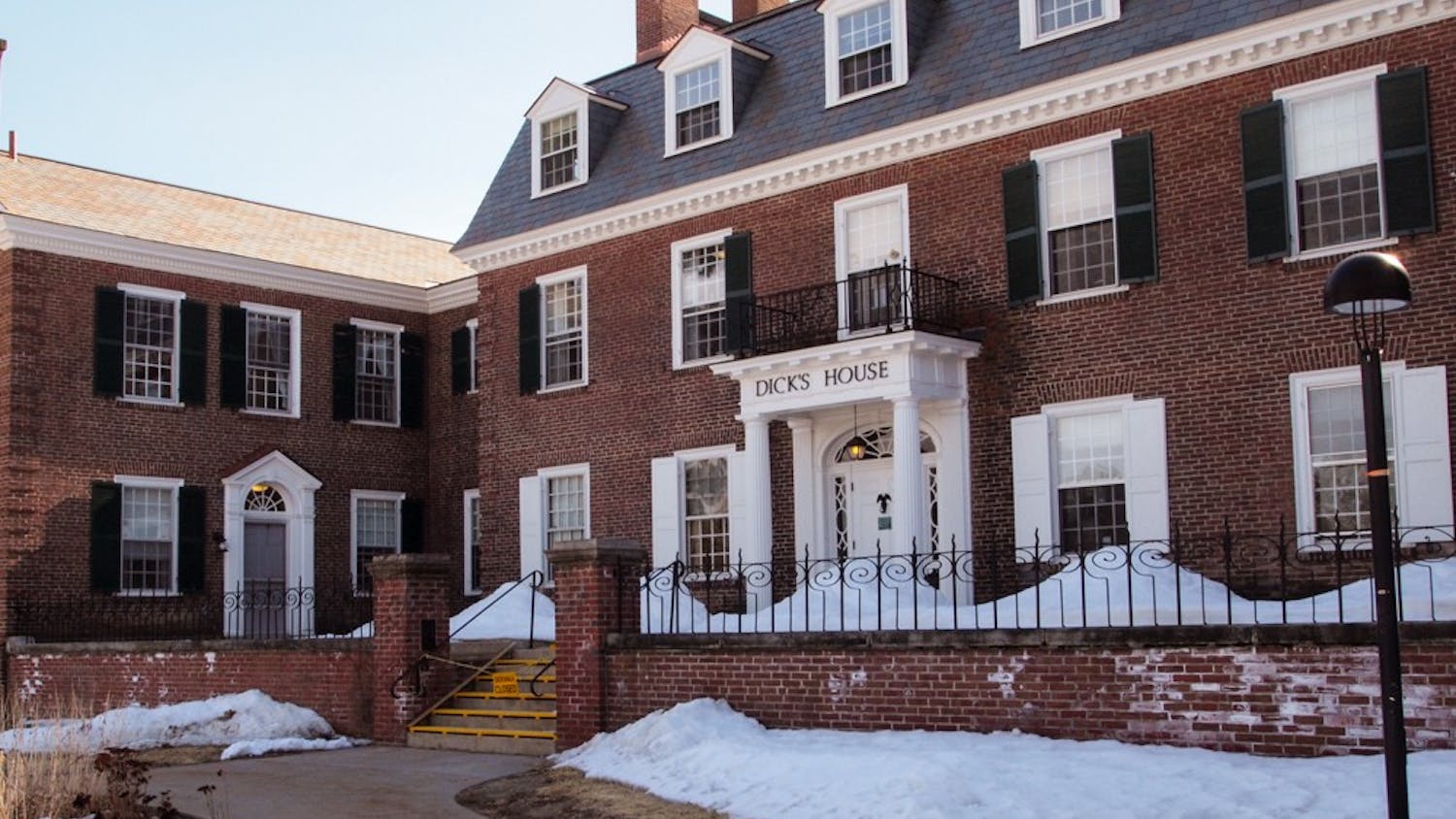Most Dartmouth students deserted campus in mid-March, to the tune of provost Joseph Helble’s “Important Campus Updates.” It seems that almost as suddenly, pleas to re-open the economy have cropped up across the United States. With the nation in the throes of both a public health crisis and an economic and social disaster, Dartmouth students and professors are grappling with the question of recovery — and how to get the timing right.
The coronavirus pandemic has shuttered businesses and decreased production levels, and the economic repercussions have taken an undeniable toll on our quality of life. Economics professor Elisabeth Curtis got to the heart of the matter by explaining that production is what moves the economy; it’s what keeps people at work rather than protesting on the streets. The economic imperative to produce may seem at odds today with the moral imperative to protect our most vulnerable by social distancing, but it’s also what generates safety and security for many people — in a world with or without the coronavirus.
“This is a huge experiment that we are conducting on planet Earth right now,” Curtis said. “Can we cut production? Can we change the way we do work and continue to lead healthy, happy lives? And right now, the answer would be no.”
Regarding pushes to re-open the economy, I asked Curtis what our recovery might look like.
“Coming out of this is going to be staggered in terms of what states do it, what countries do it, how they do it,” Curtis predicted. “I do believe that coming out of this is going to be very slow and lumpy.”
Fellow economics professor Melinda Petre, who studies the economics of education, said that she also worries about the fate of recent graduates, as the path straight from school into the job market might not be as viable as it was before.
“If there aren’t a lot of job opportunities for graduating seniors,” she said, “they might decide to change their opinion [and go] to grad school right away. We saw this a lot with the 2009 recession.”
Petre also suggested that the specific nature of this crisis could urge students toward careers in medicine and public health.
“You could imagine that there were some students that were on the fence about being pre-med, and they’re observing this high demand for doctors, they’re observing this sort of call towards public service,” Petre said. On the other hand, she acknowledged that this experience may be frightening for some students and push them away from the medical world.
Curtis and Petre both qualified their responses by telling me that from an economic standpoint, there is no historical precedent to which we can compare the current situation. The Great Recession of 2008 was caused by a financial crisis, not a public health crisis. While the Spanish Flu of 1918 depressed global economies, society and institutions looked very different back then. The only thing that’s certain about today’s crisis is that it’s causing a massive amount of uncertainty.
Meanwhile, economics professor Patricia Anderson, who teaches labor economics, said that she wonders if long-distance commuting will become a thing of the past. With telecommuting now the temporary norm, people may have more time to work efficiently if they no longer have to drive into the office.
“I hope that firms are learning that their workers can be productive telecommuting and don’t have to be on site all the time,” Anderson said.
However, Anderson is wary of the prospects for people starting their careers right now.
“There’s a lot of research showing that graduating into a recession does last with you for a really long time,” Anderson said. “You end up earning less for a long time.”
Despite this sobering statement, students are not in a hurry to return to pre-coronavirus levels of economic activity. When I asked how he felt about the push to return to normalcy, John Cho ’22 said that he agrees with the federal government’s guidelines, which recommend that states record a two-week decline in coronavirus cases before they open up. He also observed that some states are eschewing those guidelines.
“I don't really think we’ve been hitting that [two-week decline] in any of the states,” Cho said, “especially not in states like Texas and Florida.” He fears that a state that opens prematurely might suffer a second wave of infections.
Faven Woldetatyos ’21 largely agreed. She lives right outside Denver, Colo., which has been a site of heated protests. Despite Colorado Governor Jared Polis (D) announcing a transition from “stay-at-home” to “safer-at-home,” she is adamant that her own stay-at-home period will last until June.
“I don’t really have any incentive to go outside,” Woldetatyos said. “First of all, it’s not safe. Second, I know people that have the coronavirus and are still recovering from it. And third, more time is necessary in order to truly flatten curves. I think the risk is still there.”
India Nelson ’20 added that she worries about the moral implications of the protests to re-open the economy. She believes that while people have the liberty to protest and put themselves in harm’s way, they should not have the right to cause harm to more vulnerable individuals, who may not have that same choice. This brings up the question of who should be able to make what kinds of decisions.
“Certain people who aren’t involved in the decision-making process may bear the brunt of a decision that opens up the economy,” Nelson said.
When asked about whether we will see a “new normal” when the economy reopens, Cho and Woldetatyos both predicted that the level of human contact in society will significantly decrease.
“I’ve been hearing rumors go around that hand shaking is going to be abolished, which I certainly don’t mind,” Woldetatyos said.
Even though so much remains uncertain, students are making plans for the future. Cho, who recently lost the chance to experience a traditional sophomore summer, is looking forward to getting back to Hanover.
“Honestly, I would love some Tuk Tuk right now,” Cho said when I asked him what he wants to do when the economy re-opens.
His response begs the question of whether Tuk Tuk Thai Cuisine and other Main Street restaurants will still be there when we return to campus. I would like to think so. There might be partitions between diners, the plates and utensils might all be disposable and it might be a year from now, but I think we will still be able to enjoy a good meal in town.
I also don’t think that the “new normal” will be especially dystopian. So far, social distancing and stay-at-home orders haven’t changed my life drastically. Today, I stare at my laptop screen, I order off Amazon and I avoid people on sidewalks just like I did in 2019. But of course, many Dartmouth students are anticipating a time when they will be able to hang out with their friends, meet their professors in person and even congregate on the Green.
So what should we do in the meantime?
“Keep your fingers crossed, and get good at Zoom interviews,” is Anderson’s advice.
I couldn’t have said it better myself.



